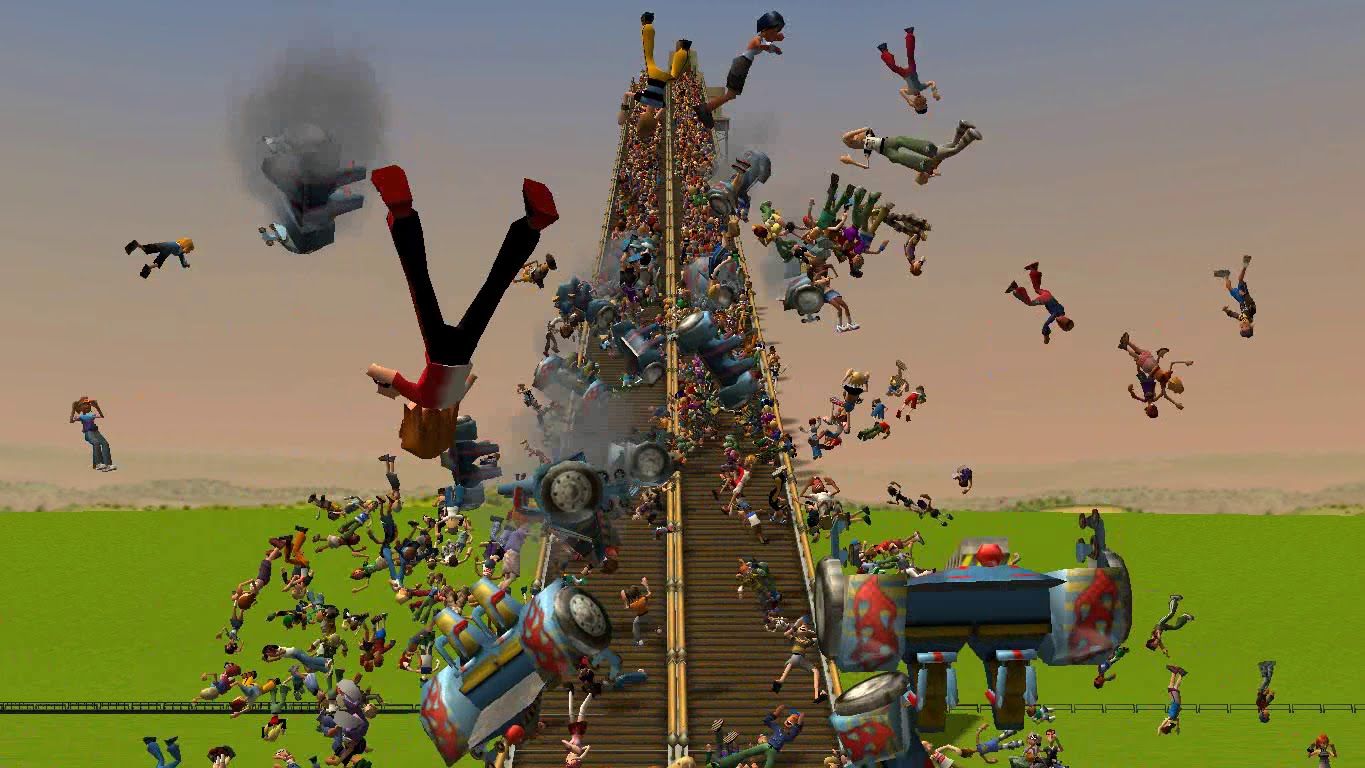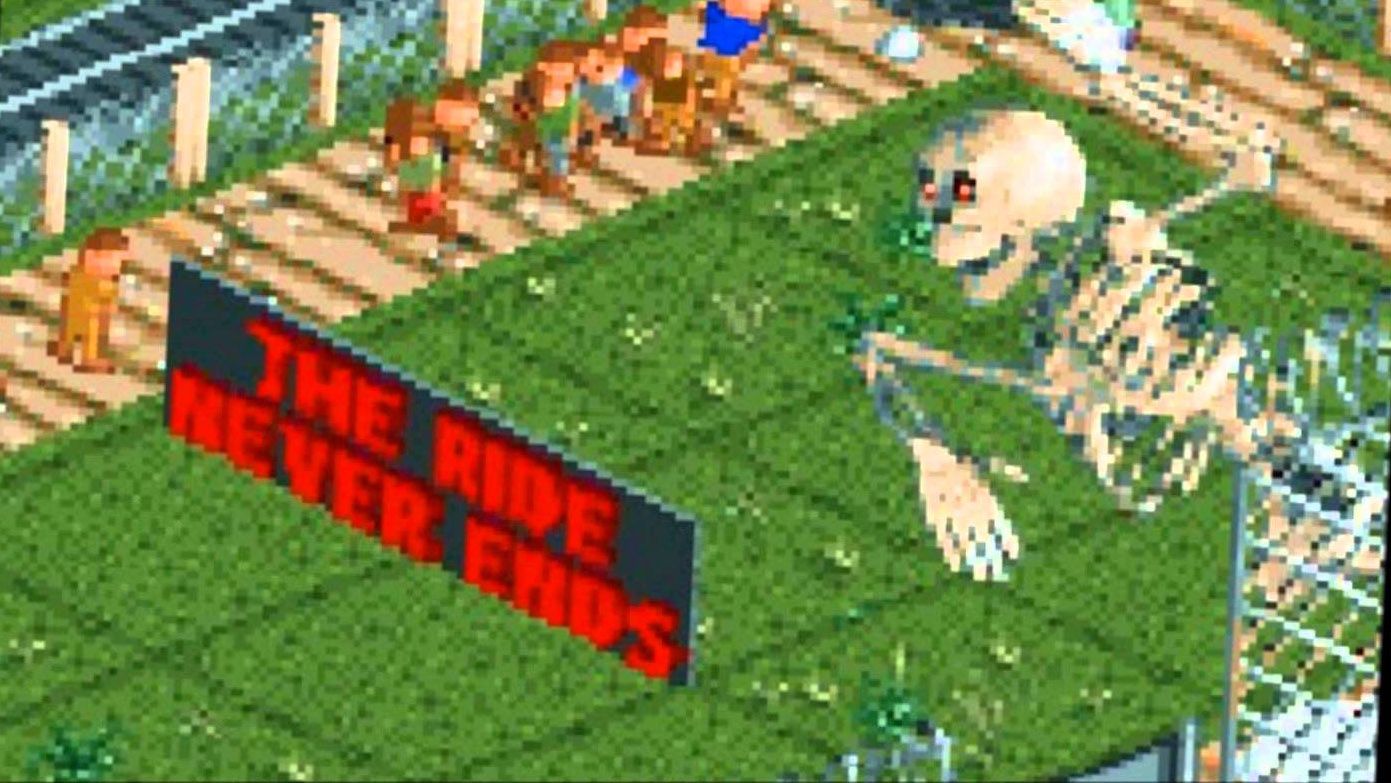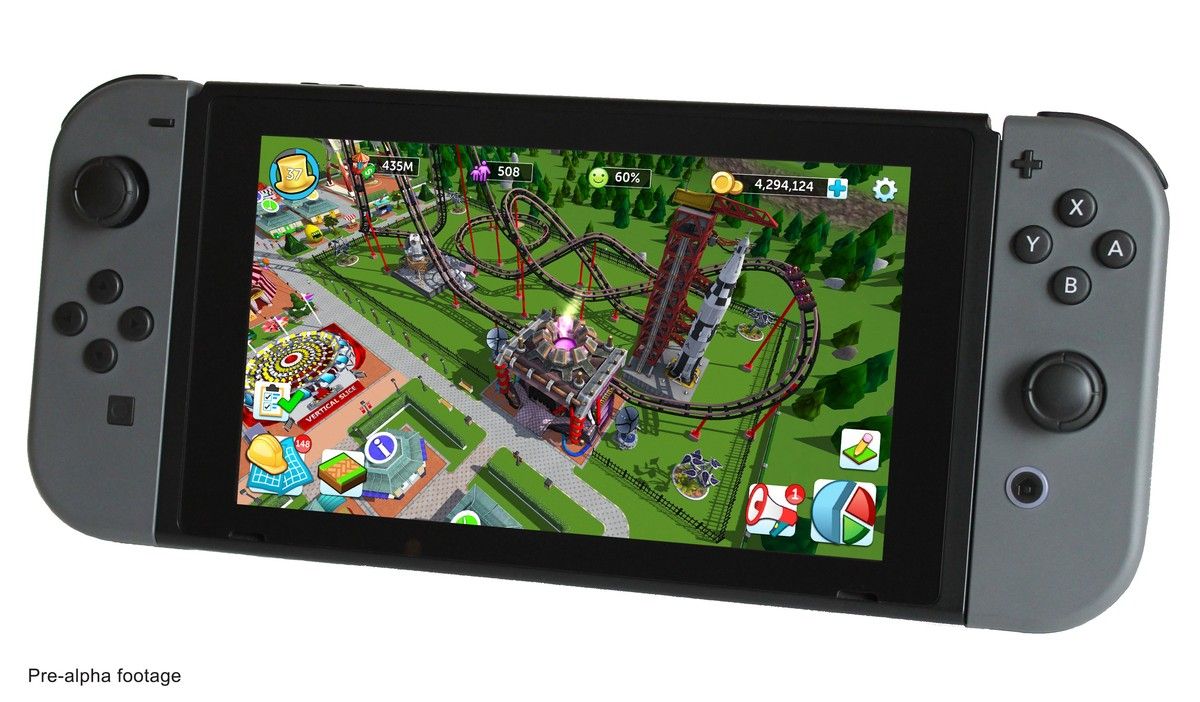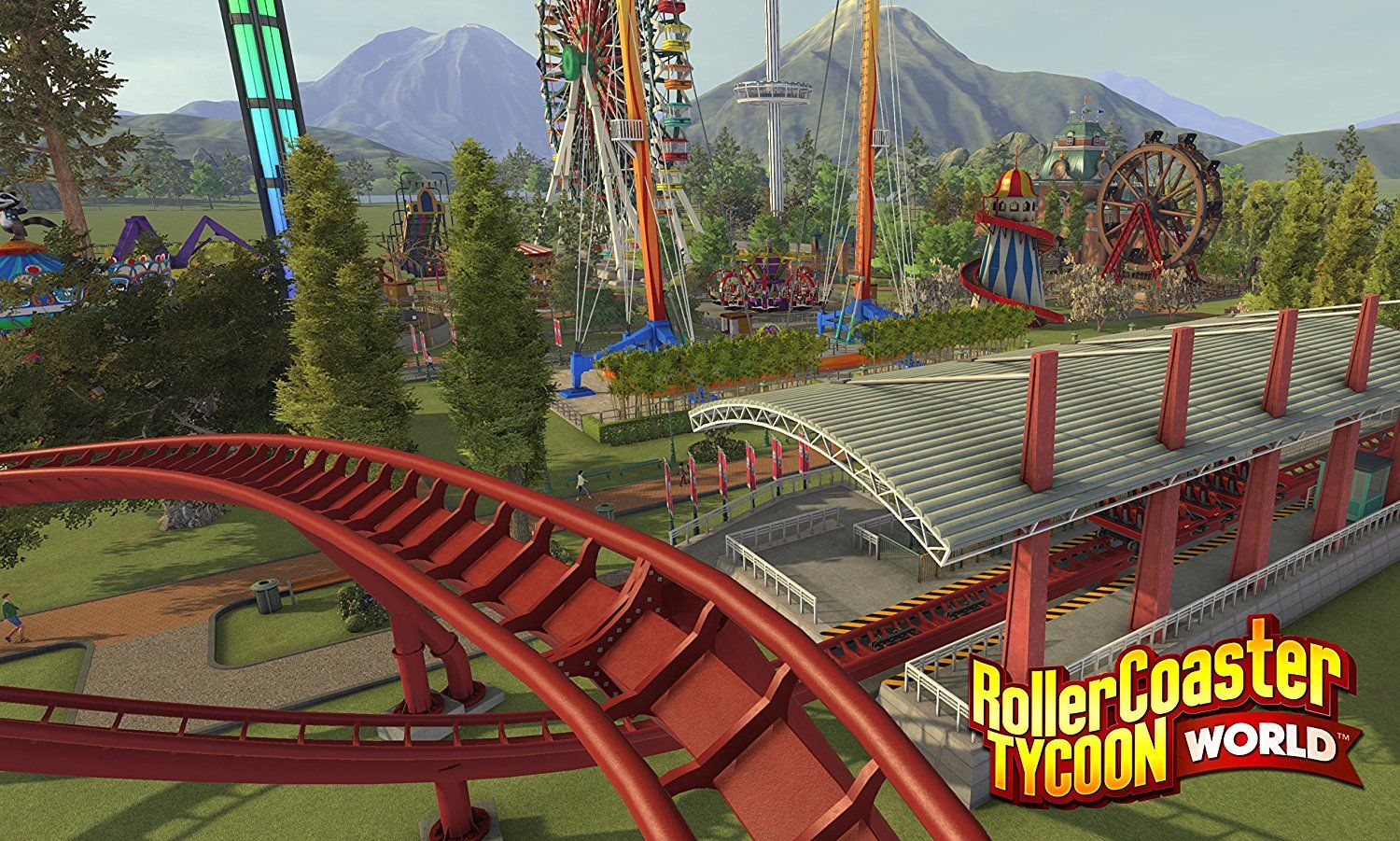Atari has recently announced their plans to develop a RollerCoaster Tycoon game for the Nintendo Switch, but there's something a little unusual about this new project that has many people feeling just a bit sketched out: Atari is attempting to pay for the development costs of this game using a crowdfunding platform.
RollerCoaster Tycoon is a theme park management simulator franchise that was originally released by Scottish developer Chris Sawyer in 1999. It was one of the most successful PC games of the late '90s, selling close to four million copies within three years of its release date. In the game, players are responsible for managing the day-to-day operations and developments of a theme park. Players can build their own custom roller coasters, hire and fire park staff, research new types of rides and attractions, and fully customize the music and presentation of their parks to their heart's content.
RollerCoaster Tycoon was one of the first games that really gave players freedom to do whatever they wanted. Much like the The Sims, a lot of the fun of RollerCoaster Tycoon was in finding odd ways to end the lives of your park's patrons. A large part of the game involves building ridiculously unsafe coasters that would launch carts packed with unsuspecting victims across the landscape of your park. RollerCoaster Tycoon strangely never penalized you for a managing a park with a high fatality rate, so players often challenged themselves to make strange and brutal rides in their games. The internet legend "Mr. Bones Wild Ride" is a primary example of the morbid sort of fun players had in the original release of this game.
With the success of the RollerCoaster Tycoon franchise, it's no wonder that Atari would seek a way to reboot this classic series, but some people believe that the company's decision to crowdfund this game is more than a little suspicious. Atari isn't using a standard crowdfunding platform, such as KickStarter or GoFundMe, and are instead using a platform called StartEngine. This site differs from other crowdfunding organizations in that it offers people a chance at profits and returns on their investments. This setup might sound legitimate at first, but there are some caveats that you need to know about before you spend any of your hard-earned money on this project.
The first real issue here is that the minimum donation you can make starts at $250, which automatically rules out a lot of potential donors. The core principle of crowdfunding is that lots of people giving small amounts of money can result in the financing of one big project, so setting the minimum donation for RollerCoaster Tycoon at the average price of four brand new AAA games is a profoundly confusing decision. To make matters worse, donors who shell out $250 don't even get a copy of the finished game, which is a "perk" reserved for financiers who invest over $1500 into this project. For some perspective here: $1500 could buy you two year-long season passes for DisneyWorld, which would arguably be a better way to get your theme park fix at that price point.
If you're not scared off by the steep minimum investment price, the terms of the returns for your money seem halfway decent at first. Financiers are offered 50% of their investments up to a 120% return, plus 25% of profits up to 18 months after the game's release. However, according to the terms of investment laid out on RollerCoaster Tycoon's StartEngine page, Atari can cancel this profit-sharing agreement if the game's development is canceled, and investors will only get these meaty returns if Atari manages to reach their $2 million goal. At this point in time, the funding campaign currently has a measly 56 backers, with just under $30,000 in funds acquired.
Financiers who are okay with highly conditional returns on their investments should know that there's something even more suspicious hidden in the fine print of this funding campaign. Under a section marked as "Irregular Use of Proceeds," Atari states that funds raised for this game could be used for expenses, such as "salary made to one's self," and "any expense labeled... Entertainment."
Even worse, this section states that funds raised for RollerCoaster Tycoon could be used for "the purposes of inter-company debt or back payments." This means that Atari can take funds from this campaign to pay off their debts to other companies at their discretion. It's important to point out that Atari filed for bankruptcy in 2013, and that the company is currently being sued by Frontier Development for refusing to pay out $2.2 million in royalties.
If you're starting to feel like there's something seriously fishy going on with this "investment opportunity," you're not alone. The comments section for RollerCoaster Tycoon's StartEngine page is loaded with derisive and skeptical posts about the legitimacy of this campaign. Some commenters have directly accused Atari of blatantly lying about plans to develop a new RollerCoaster Tycoon title in the first place. Others believe that this game will just be a port of Atari's disastrous RollerCoaster Tycoon World.
Even if you're not bothered by the weird stipulations in the investment outline, or Atari's looming legal issues, think about this whole situation in terms of common sense. Crowdfunding campaigns are almost exclusively reserved for indie games, such as SuperHot, that lack the capital and clout to go into development on their own. However, RollerCoaster Tycoon isn't some unheard-of title, and Atari is hardly a fledgling startup studio. RollerCoaster Tycoon is an established franchise with an enormous fan base, so why would such a sure success need to rely on crowdfunding to find investors?
The very best case scenario here is that Atari is performing a cash grab in the same spirit of EA's controversial loot boxes in Star Wars: Battlefront. The worst case scenario is that this is a full-blooded scam. A better alternative to funding this conspicuous campaign might just be to buy RollerCoaster Tycoon: Deluxe on Steam. This newly polished version of the original game retails for under ten dollars, making it an absolute steal when compared to the $1500 investment barrier required for obtaining the new Switch version of this title.
If you're still not convinced that investing in this project seems like it's a bad idea, it's entirely up to you to take that leap of faith and to put your money where your mouth is. There's a chance that Atari's project is legitimate, and that RollerCoaster Tycoon is a viable investment opportunity. Do what you want with your income, but as the old adage goes: a fool and his money soon are parted.




